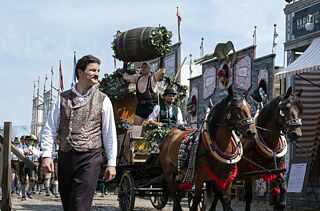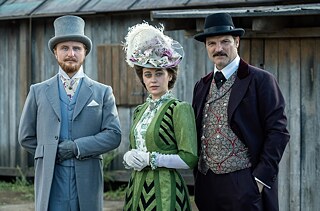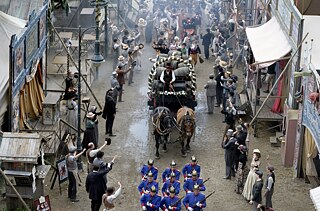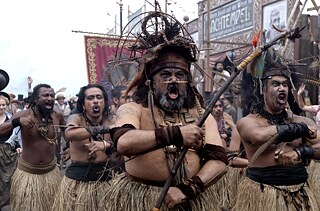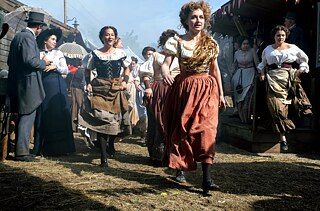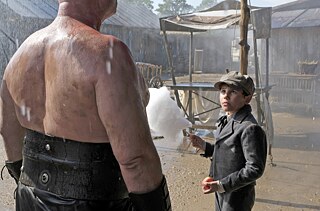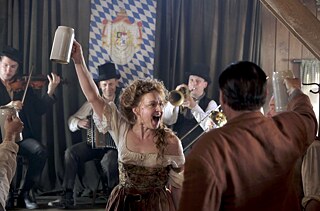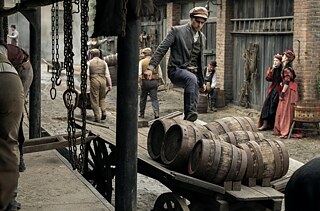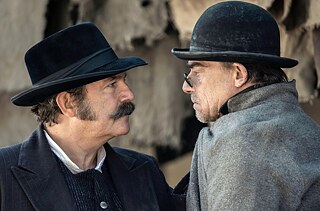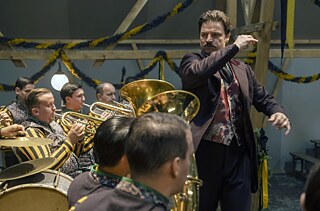German Series in the USA
Oktoberfest 1900: Beer and Blood
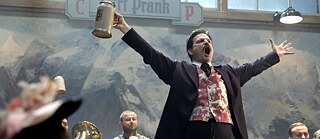
Bavarians have a reputation in their own country as an independently minded (and somewhat hardheaded) people and abroad often serve as the cliche laden caricature of the stereotypical “German”. It’s no secret though that many beer aficionados in the US and worldwide have a special fondness for this rather distinct region of Germany, famed for its overflowing beer steins. In the US, the demand for locally brewed beers shows no signs of abating, Oktoberfests are now being celebrated everywhere as a kitschy ode to the southern German state, and beergardens are popping up at notable rates, striving to serve as the communal hearth of Bavarian “Gemütlichkeit” that can turn strangers and kin into one beery tribe. But Bavaria has also produced its fair share of filmmakers, including its renowned enfant terrible, Rainer Werner Fassbinder.
By André Lavoie
Shattering the stereotype of the “jolly Bavarian,” this series assumes the air of a Shakespearean tragedy
The latest heir to this cinematic tradition, Ronny Schalk, now reigns over Germany’s television landscape. As one of the writers of Dark, the streaming juggernaut that ran from 2017 to 2020, Schalk revealed the commercial potential of foreign productions on that most American of streaming platforms, Netflix. And Netflix took notice. With Oktoberfest: Beer and Blood, Schalk makes the leap from dystopian science fiction to historical drama (although the macabre overtones remain). This new six-part series, now on Netflix, boasts stunning high production values that will keep viewers glued to the screen.The hops of Wrath
The series’ title lays it all out: the setting (Munich), the dramatic catalyst (beer) and the genre, with its unabashed nod to Quentin Tarantino. While it certainly takes liberties with the history, audiences will quickly become engrossed in this tale of early-20th-century Germany, a country on the brink of turmoil. There is a lot to swallow—and digest—in Oktoberfest: Beer and Blood, with its depictions of rapid industrialization, loosening societal mores, the declining influence of the bourgeoisie against the rise of scheming tycoons and the struggle of the lower classes in the face of capitalist oppression.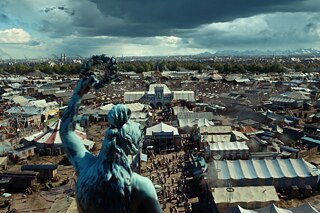
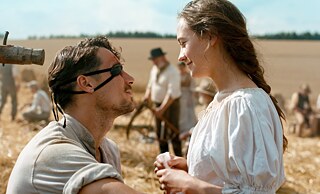
Beer barrels and class struggles
As a work of historical fiction, if not historical accuracy, the series can claim to be based on real events. The Carl Prank character is largely inspired by Georg Lang, a native of Nuremberg whose boots earned him the nickname “Crocodile Lang.” That said, this period piece is all the more intriguing for its portrayal of the era’s socio-economic upheavals.While COVID-19 may have put a damper on Munich’s Oktoberfest in 2020, previous years have attracted crowds upwards of 6 million people, with 7.5 million litres of beer served in 2018 alone. This spectacular event is driven by high-powered commercial interests, and Oktoberfest: Beer and Blood is their compelling origin story: the collusion of rich merchants, the destruction of small players and the race for profits on the backs of the working poor. At one point the series takes a page from Lysistrata, the Greek comedy by Aristophanes in which women put an end to war by going on a “sex strike.” In this case, it’s lager, not lovemaking, that gets denied, as waitresses refuse to serve patrons until they get a wage increase. In that moment, Gerdi, the Hoflinger matriarch who harbours a dark past, could be channelling Rosa Luxemburg.
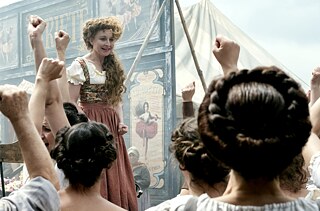
Blood is thicker than beer
Martina Gedeck (The Lives of Others, The Baader Meinhof Complex) delivers an intense performance as Gerdi Hoflinger, lighting up the screen at every turn. Unfortunately, while she may evoke shades of Mother Courage, Gerdi seems incapable of fending off the evil forces threatening her family. Meanwhile, the relationship between her reckless son Ronan and his meek younger brother Ludwig (an excellent Markus Krojer) serves to embody the conflict between entrepreneurial ambition and artistic aspiration. Ludwig also acts as the viewer’s guide through Munich’s forbidden underbelly, forerunner to 1920s Berlin, a city that the more free-spirited of Munich dwellers dream of escaping to.But the real appeal of Oktoberfest: Beer and Blood lies in the clash between time-honoured traditions and the promises of the future, forcefully ushered in with cunning, betrayal and criminal behaviour. This reimagining of Bavaria as a beer-strewn battlefield will intoxicate viewers with its technical achievements, grand opulence (it features no fewer than 4,000 extras) and the outrageous behaviour of its monstrous protagonists from a bygone era. An era not too distant from our own.
"Oktoberfest 1900" is a production by Zeitsprung Pictures in cooperation with Violet Pictures and Maya Production, in co-production with BR (leading), ARD Degeto, MDR and WDR for ARD, funded by FFF Bayern, the Film- und Medienstiftung NRW, the German Motion Picture Fund and the Czech Film Fund. Producers are Michael Souvignier and Till Derenbach (Zeitsprung Pictures), Alexis von Wittgenstein (Violet Pictures) and Felix von Poser.
Directed by Hannu Salonen. The head authors of the series are Ronny Schalk and Christian Limmer based on a concept by Alexis von Wittgenstein. Misel Maticevic, Martina Gedeck, Francis Fulton-Smith, Klaus Steinbacher, Mercedes Müller, Brigitte Hobmeier, Maximilian Brückner, Markus Krojer, Martin Feifel, Michael Kranz and Vladimir Burlakov star in the leading roles of "Oktoberfest 1900".
Watch "Oktoberfest: Beer and Blood"
In the USA
NetflixIn Germany
Netflix
ARD Mediathek (until 12.30.2020)
